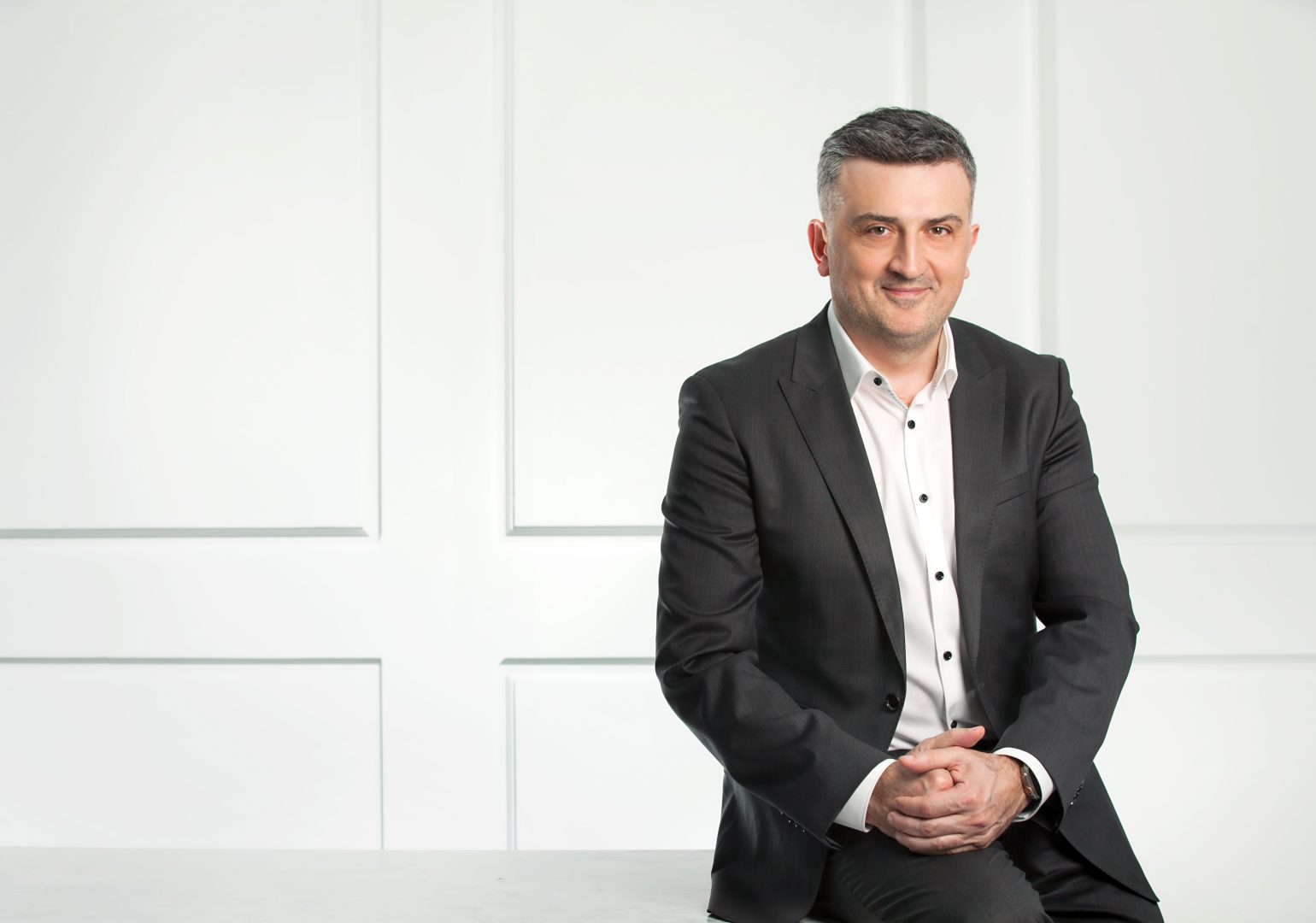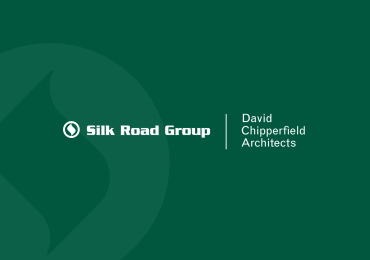Born at the epicentre of America’s financial system, Mastercard has been an active innovator in the Georgian market for years, building a strategic bridge between traditional and digital economies. As Davit Zghudadze, Mastercard’s regional head, tells us, the company’s focus today is on innovation—a process set to create a new financial reality in the country.
Author: Kakhi Chakvetadze
How did 2025 begin for Mastercard and the industry as a whole? Have new focus areas emerged that you’re particularly emphasizing?
For Mastercard, 2025 is a year of technological transformation, where innovation becomes a daily reality and global vision turns into tangible products. We started this year with a completely refreshed strategic framework that views security, biometrics, artificial intelligence, and decentralized finance as parts of a single digital ecosystem. The company is also actively developing its portfolio of cybersecurity platforms. Our most significant acquisition this year is Recorded Future, which integrates comprehensive cybersecurity functionalities.
Globally, the transformation we’ve been discussing for years has accelerated. We are rapidly focusing on digital innovations: numbers are disappearing from cards, biometric systems are replacing traditional passwords, and the payment process is becoming an almost invisible part of daily life. Mastercard is no longer just a player in this process—we feel a responsibility to be the architects of how financial relationships will function in the next decade. That’s why we continue to develop technologies like biometrics, the Multi-Token Network, SoftPOS, Passkey, and Generative AI-integrated payments. Alongside this, we are making substantial investments in security and cyber resilience to combat the threats posed by fraud.
In Georgia, we are strengthening areas that are particularly crucial for the country at this stage—from AI education to inclusive innovations that genuinely change people’s lives. Mastercard provides the essential infrastructure for global digital payments and serves as the backbone of the digital economy. Our focus in the country is strictly on inclusivity, not just in terms of technological development, but also accessibility. We are creating an environment where innovation isn’t just an opportunity for a few, but a transformative mechanism for everyone, whether it’s a small entrepreneur, a student, or a financial institution. Our vision is that technology should guarantee progress, not be a privilege—and that’s the reality we are building in Georgia in 2025.
Could you tell us more about Mastercard’s new educational initiative aimed at giving young people practical experience in the AI field?
Supporting education and enhancing technological skills are top priorities for us. With this vision, Mastercard, in partnership with AI Hub Nebula, has launched a large-scale educational initiative in Georgia. Its goal is to provide young people with theoretical knowledge and practical experience in artificial intelligence, financial literacy, e-commerce, and cybersecurity. Our goal is not merely to provide Georgia’s youth with knowledge, but to push them to become creators and leaders of future technologies themselves.
As part of the project, participants will undergo an 8-week practical course. Upon completion, they will be able to independently create AI systems such as chatbots, analytical tools, image recognition models, and more. The training is designed so that students acquire skills applicable in the real world—they aren’t just learning about technology, they’re learning how to apply this knowledge in business, marketing, finance, media, and other leading industries.
We believe such initiatives can empower not only specific individuals but also foster the development of the country’s technological ecosystem. For us, innovation isn’t just about offering technological services, it’s a value necessary for the country’s development, giving people real power. That’s why supporting education is our strategic commitment. Access to knowledge and practical learning must become the foundation for the country’s advancement.
How does Mastercard use artificial intelligence for analytics and customer service?
Artificial intelligence is an integral part of Mastercard’s operations and has, for years, been the basis not only for data analysis but also for our decision-making processes. AI helps us act proactively in detecting fraudulent transactions, often identifying a risk for the customer even moments before they recognize it themselves. This real-time system acts as the intelligence behind every payment, assessing potential threats with maximum accuracy.
At the same time, artificial intelligence is a significant tool for better understanding our customers and creating personalized offers for them. Through data analysis, we learn not only what people are buying but also what they expect in the future, and we strive to meet these expectations in advance. That’s why AI is no longer just an additional tool, it’s a crucial component for making the customer experience more individual, timely, and valuable. This year, Mastercard introduced an agentic payments program called Agent Pay, a significant step in integrating Gen AI into the payments ecosystem. AI agents will be able to make secure, personalized payments on behalf of users, fundamentally changing how consumers and businesses conduct online transactions.
Recently, Mastercard has partnered with various companies to integrate Bitcoin and stablecoin payments into traditional financial infrastructure. What role will blockchain and decentralized finance play in your future strategy?
Blockchain and decentralized finance are changing the rules of the financial world. We see these technologies becoming practical and efficient means for payments and money transfers. Mastercard’s goal is to be not just an observer in this process but an active player, creating an ecosystem where paying with digital assets is secure, simple, and widely adopted.
Within this vision, Mastercard has initiated the Multi-Token Network, a technological network that connects various tokenized assets and creates an infrastructure where stablecoins, Bitcoin, and other digital assets are participants in the process. Furthermore, we are collaborating with payment providers and technology giants to give users complete security and control through tokenization in a world where value is mobile and trust is fundamental.
What other innovations can we expect from the company, and how will they be reflected in the Georgian market?
Mastercard continues to transform payment systems. Where cards were sufficient years ago, today biometrics, artificial intelligence, and tokenization are setting new standards. We are working to make payments simple and seamless—with a glance, a fingerprint, without any physical contact with the system. This is how services like FacePay, Passkey, and tokenized authentication are evolving, making the user experience faster, more secure, and perfectly aligned with modern lifestyles.
Our goal is not just to introduce new products. In Georgia, we are not only implementing technologies but also developing the market as a responsible and active partner. This means investing not only in products or services but also in education and digital inclusion.
Priceless.com is one of Mastercard’s interesting platforms, which Georgia has joined as a tourist destination. What does Mastercard offer Georgian and international users in this regard?
Priceless.com is Mastercard’s global platform that offers users unique, special experiences in various parts of the world. Mastercard actively uses its global channels to present Georgia as an interesting destination for discerning travelers. Adding our country to such an important global platform not only creates opportunities for tourists to discover amazing experiences but also supports the global expansion of the country’s image, strengthens the local economy, and helps internationalize services.
A fairly significant recent initiative is offering special discounts to foreign Mastercard cardholders in partnership with Georgian merchants. We are working on communicating these offers throughout the region and will reach over half a billion users in total. You’ll probably agree that this is a very high figure for the tourist sites involved in the project. We believe such offers will enable us to attract many people to Georgia and contribute to the growth of the country’s tourism potential.
The company’s team in Tbilisi is growing and also covers other countries. What are the advantages of being a Mastercard team member? What is the team structure and work culture like?
Being a Mastercard team member means being at the center of global innovation, in a space where the future of financial technology is created daily. We have already developed a strong regional team in Tbilisi, responsible not only for Georgia but also for supporting neighboring markets: the Caucasus, the Middle East, Central and South Asia, and Eastern European countries. This gives us a unique opportunity to work on local challenges while adhering to global standards, be part of international initiatives, and build broad expertise within the team.
Mastercard’s work culture is built around collaboration, continuous development, and innovative thinking. We are proud that every person in the team has the opportunity to freely express ideas, actively participate in the decision-making process, and work on projects that directly impact the development of the financial industry. There’s a strong emphasis on professional development—our employees constantly receive new opportunities through training and involvement in international projects.
How would you assess the current market conditions in Georgia? And specifically for a company like Mastercard, what are the main operational or legislative hurdles you typically encounter?
The Georgian market is developing rapidly, especially in digital payments, financial technologies, and customer-tailored services. Today, Georgian consumers demand flexibility, security, and smart solutions, which naturally creates fertile ground for innovation. One of the country’s biggest advantages is the high level of receptiveness to technology: when innovative products are introduced, the market reacts quickly, and consumers embrace new things enthusiastically. In general, the Georgian market, in terms of both consumer and financial institution maturity, currently holds one of the leading positions in the region.
But Mastercard is not just a product supplier in Georgia—we also create services locally. Globally and locally, we are developing five service lines: consulting, data analysis, marketing services, managed services, and platforms. We already have a services team in Tbilisi, which we are strengthening as demand grows. We have already carried out consulting and marketing projects with several partner financial institutions, and some products will soon appear on the market. For example, with one of our partners, we are implementing Dynamic Yield—an AI-based hyper-personalization platform that provides users with offers tailored to their behavior and needs in real-time.
How are trends changing in the industry—what will be the Next Big Thing?
The financial technology industry is entering a completely new phase. Technological trends are not only focused on refining services but are also changing the very nature of financial communications. In the coming years, there will be a strong emphasis on biometric payments, tokenization, digital identities, and smart financial contracts. This means users will be able to access financial services even more easily, quickly, and securely.
We think the Next Big Thing will be a combination of technologies—for example, merging blockchain, artificial intelligence, and biometrics so that payments, services, and digital authentication become completely transparent, yet secure and personalized. Digital identity management will become particularly relevant—how users navigate the digital world securely and maintain control over their own data.
What is the company’s development strategy? In general, how do you see the future of cashless payments?
Mastercard’s development strategy goes beyond just payment technology. We are working on a new economic reality where financial interfaces are seamlessly integrated into people’s daily lives. Our goal is for digital finance to become not a technical process, but a form of freedom, where individuals use financial instruments as easily and naturally as they walk down the street or send a message today. Our vision for Mastercard is to be the platform that not only follows change but leads the transitional process itself, where technology, trust, and human freedom unite into a new financial reality.










